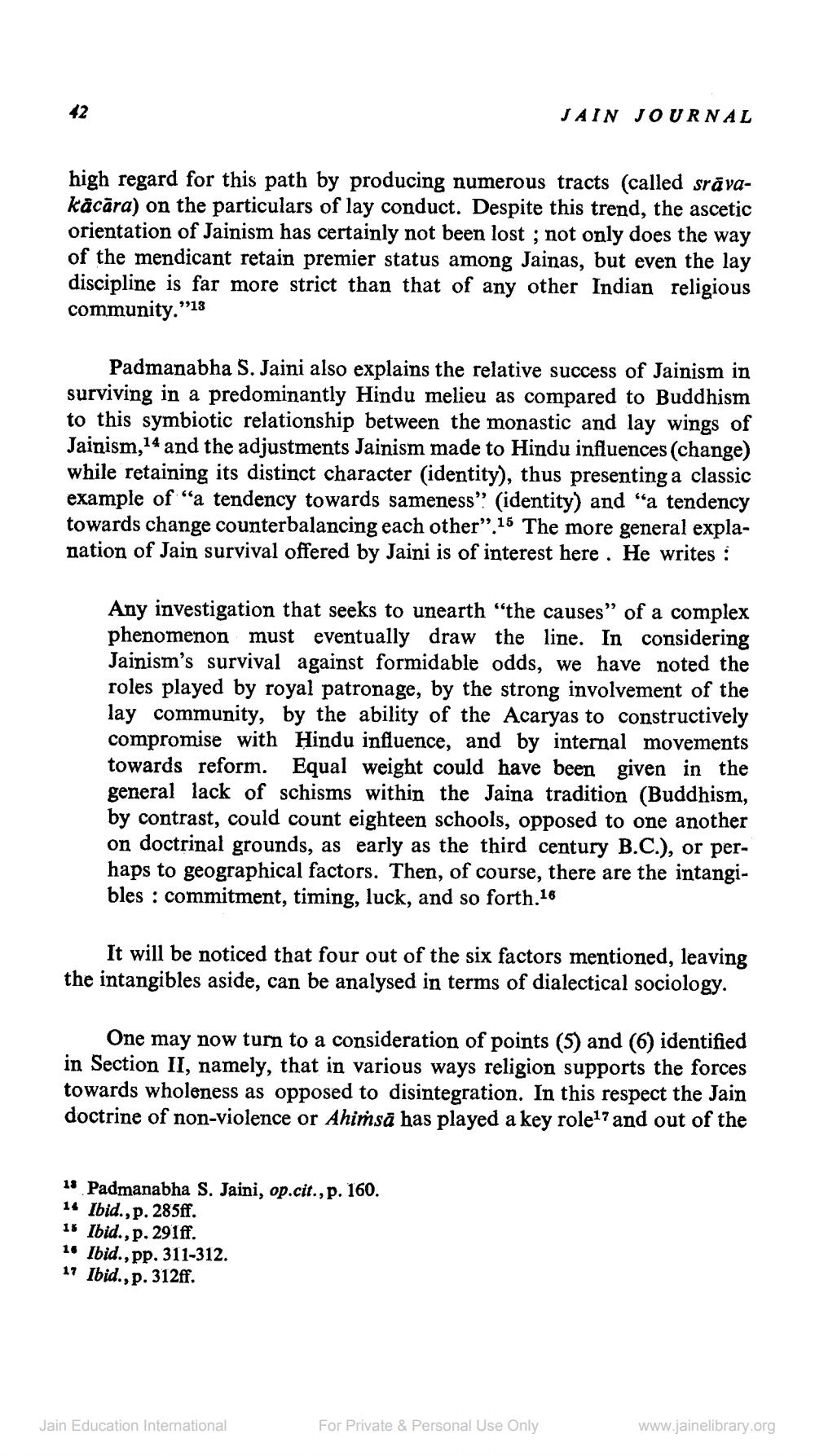________________
JAIN JOURNAL
high regard for this path by producing numerous tracts (called srāvakācāra) on the particulars of lay conduct. Despite this trend, the ascetic orientation of Jainism has certainly not been lost ; not only does the way of the mendicant retain premier status among Jainas, but even the lay discipline is far more strict than that of any other Indian religious community."13
Padmanabha S. Jaini also explains the relative success of Jainism in surviving in a predominantly Hindu melieu as compared to Buddhism to this symbiotic relationship between the monastic and lay wings of Jainism,14 and the adjustments Jainism made to Hindu influences (change) while retaining its distinct character identity), thus presenting a classic example of "a tendency towards sameness” (identity) and “a tendency towards change counterbalancing each other”.15 The more general explanation of Jain survival offered by Jaini is of interest here . He writes :
Any investigation that seeks to unearth "the causes” of a complex phenomenon must eventually draw the line. In considering Jainism's survival against formidable odds, we have noted the roles played by royal patronage, by the strong involvement of the lay community, by the ability of the Acaryas to constructively compromise with Hindu influence, and by internal movements towards reform. Equal weight could have been given in the general lack of schisms within the Jaina tradition (Buddhism, by contrast, could count eighteen schools, opposed to one another on doctrinal grounds, as early as the third century B.C.), or perhaps to geographical factors. Then, of course, there are the intangibles : commitment, timing, luck, and so forth.16
It will be noticed that four out of the six factors mentioned, leaving the intangibles aside, can be analysed in terms of dialectical sociology.
One may now turn to a consideration of points (5) and (6) identified in Section II, namely, that in various ways religion supports the forces towards wholeness as opposed to disintegration. In this respect the Jain doctrine of non-violence or Ahiṁsā has played a key role?' and out of the
18 Padmanabha S. Jaini, op.cit., p. 160. 14 Ibid., p. 285ff. 15 Ibid., p. 291ff. 16 Ibid., pp. 311-312. 17 Ibid., p. 312ff.
Jain Education International
For Private & Personal Use Only
www.jainelibrary.org




